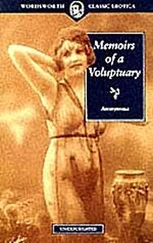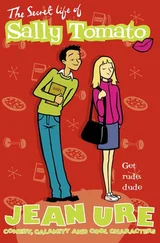Elizabeth Bisland - The Secret Life
Здесь есть возможность читать онлайн «Elizabeth Bisland - The Secret Life» — ознакомительный отрывок электронной книги совершенно бесплатно, а после прочтения отрывка купить полную версию. В некоторых случаях можно слушать аудио, скачать через торрент в формате fb2 и присутствует краткое содержание. Жанр: foreign_antique, foreign_prose, на английском языке. Описание произведения, (предисловие) а так же отзывы посетителей доступны на портале библиотеки ЛибКат.
- Название:The Secret Life
- Автор:
- Жанр:
- Год:неизвестен
- ISBN:нет данных
- Рейтинг книги:5 / 5. Голосов: 1
-
Избранное:Добавить в избранное
- Отзывы:
-
Ваша оценка:
- 100
- 1
- 2
- 3
- 4
- 5
The Secret Life: краткое содержание, описание и аннотация
Предлагаем к чтению аннотацию, описание, краткое содержание или предисловие (зависит от того, что написал сам автор книги «The Secret Life»). Если вы не нашли необходимую информацию о книге — напишите в комментариях, мы постараемся отыскать её.
The Secret Life — читать онлайн ознакомительный отрывок
Ниже представлен текст книги, разбитый по страницам. Система сохранения места последней прочитанной страницы, позволяет с удобством читать онлайн бесплатно книгу «The Secret Life», без необходимости каждый раз заново искать на чём Вы остановились. Поставьте закладку, и сможете в любой момент перейти на страницу, на которой закончили чтение.
Интервал:
Закладка:
And the haunted man sits with idle hands and withered purpose, listening always to the voice, while his neighbours push loudly on to die futilely but gloriously in the unending battle.
"An end-of-the-century disease," say these full-fed, happy egotists with lowered breath and eyes askance as they pass the haunted house. "The mould of age has fallen upon him and made him mad." Yet before the walls of Troy these two – the ghost-ridden, and the happy egotist – battled for the glowing shadow of a woman whom neither man loved nor desired. Achilles, blackly melancholy in his tent, heard the old voice cry
"ἐν δὲ ἰῇ τιμῇ ἠμὲν κακὸς ἠδὲ καὶ ἐσθλός"
and disdains the greatness of life and the littleness of it. To an iron inevitableness of fate he opposes only indifference and an unbending courage. That which has been will be, and the end is death and darkness. He has no illusions. He wars neither for love of country nor love of Helen. If Troy falls nothing is gained. If the Greeks fail nothing will be lost. In time all the sweat and blood shed upon Ilium's windy plain will evaporate into a mere mist of uncredited legend. In Achilles, the other self, the alter ego , is the stronger man. The ghost of dead experience is as living as he.
Not so is it with Hector. All the passions of humanity are as new and fresh to him as if none before himself had known them. He looks neither forward nor back. The present is his concern. What though men have died and been forgotten, he will not lessen his utmost effort, even to the giving up of his life to save Troy. That is to him the one thing of importance. So robust is his courage, his faith, his love, that the sad spirit of memory within him cannot speak loud enough to make him hear. There is no warring of dual personalities in him; he is aware of but one – that rich momentary incarnation called Hector, more potent than the memories and experiences of the thousands of lives that preceded him, that gave him existence.
What though Achilles was right; what though both be but dust and legend now – who would not choose that flash of being called Hector – Hector dragged at the chariot-heel of Achilles – Hector with wife enslaved and children slaughtered and his city's proud towers levelled with the plain, rather than to have been the haunted victor, triumphing but not triumphant; fighting without purpose or hope? The same end indeed came to both, but one died as he lived, for what he thought a glorious end, while the other too passed away – but with the cold knowledge that both deaths were fruitless and vain.
Troy is a dream, but the battle forever is waged between the fresh incarnation of being and the memories of past being. Every creature wakes out of childhood aware that he lives not alone in even the secretest chambers of his life. Which is the I he cannot always say. The two companions are never at one. Sometimes the struggle breaks into open flame. Sometimes the one is victor, sometimes the vanquished. Each fights for Helen, for his ideal of pleasure, of wisdom, or of good, but in the very handgrips of battle a chilling doubt will fall between them whether she for whom they war – call her virtue, beauty, lust, life, what you will – is the real Queen, or only some misleading eidolon whose true self is hid in distant Sparta; and so the grasp relaxes, the tense breath falls free, the selves mingle. Man gropes for truth and finds it vague, intangible, not to be grasped – a dream.
February 17.
"A Young Man's Fancy."
What is that ineffable quality in the air that says Spring ?
Long ago, as far back as towards the end of January, there came suddenly one day a sense that the winter was conquered. There has been much cold weather since – we shall have much cold still, but there is always a promise in the air.
There is a sad day later in the year when one is aware all at once that summer is ending, and the warm, mild weeks that follow never console for that hour's realization that the apex is crossed and the rest of the path slopes downward. Just such a day comes in one's life, – while one is still young and strong – a sudden sense that youth is done; the climacteric of passion passed. Life has a long Indian summer still, but it's never again the real thing, – that ripening toward fruition; that ecstasy of expansion and growth. There is no visible change for a while, yet every day there is an imperceptible fall in the temperature. Always the nights are growing longer. The flowers drop away one by one – the sap sinks a little, leaving the extreme delicate twigs moribund. No one has seen the leaves fall, yet there are fewer upon the bough – winter is coming.
Age is peaceful, perhaps – but middle age – ! The wave clings to the shore, but the inexorable ebb draws it down relentlessly into the deep. This is the time that men go musth , like old elephants. This is the period when both men and women do their mad deeds, which belie all their previous records. It is their one last frantic clutch after vanishing romance and passion. Men buy a semblance of it from young women sometimes, and resolutely endeavour to persuade themselves that it is the real thing – that gold can renew youth, can purchase a second summer – but they know well that it is only a mechanical imitation. Those cruel old satirists, the comedy writers, loved to paint the trembling dotard resolutely shutting his eyes to the lusty young rival hiding behind the jade's petticoats.
As for the women! – who shall tell the real story of the middle age of women? – of the confident coquette, who one day turns away to punish her slave, and finds, when she relents, that his eyes are fixed upon her daughter? – of the bewildered inspection of the mirror, that still tells a fluttering tale of curves and colours, though startled experience shows the eyes of men turning in preference to crude, red-elbowed girls, obviously her inferior in grace and charm? – of the shock of finding that the world is no longer much interested in her – the amazement of the discovery that the handsome lads see little difference between a woman of thirty-five and one of fifty? – of the shame-faced misery of learning that the passion, which she has virtuously resolved to repulse, is given in reality to her niece? Her charm, her sweetness, her well-preserved beauty is as nothing beside mere raw youth. Undeveloped figures, flat chests, blotchy complexions, are of more value than her rounded mellow loveliness. She is pushed from her throne by giggling girls, who stare at her in hard contempt and wonder openly what the old creature does lingering belated in this galley.
Though she be called "a fine woman" still, men of all ages will turn from her to dote upon an empty-headed debutante. Her comprehension and sympathy, her wit and her learning are less enthralling than the vapid babblings of red-cheeked misses just out of pinafores. Her heart is as young as ever; she knows herself capable of a finer, nobler passion and tenderness than the girl can dream of, yet the selfish, egotistic emotions of the self-confident chit awake a rapture that would be dulled by the richest warmth she could give.
"Age, I do abhor thee:
Youth, I do adore thee;
O, my love, my love is young !"
That she in her turn elbowed the preceding generation from its place comforts her not at all. Oh, for again one hour only of the splendid domination of youth – one rich instant of the power to intoxicate!..
There is nothing for it but to keep such things to one's self, and jog on quietly and respectably to the end. One has had one's turn.
That mad girl Spring has passed up this way
With a hole in her pockets,
For here lies her money all strewn in the grass —
Broad dandelion ducats.
Интервал:
Закладка:
Похожие книги на «The Secret Life»
Представляем Вашему вниманию похожие книги на «The Secret Life» списком для выбора. Мы отобрали схожую по названию и смыслу литературу в надежде предоставить читателям больше вариантов отыскать новые, интересные, ещё непрочитанные произведения.
Обсуждение, отзывы о книге «The Secret Life» и просто собственные мнения читателей. Оставьте ваши комментарии, напишите, что Вы думаете о произведении, его смысле или главных героях. Укажите что конкретно понравилось, а что нет, и почему Вы так считаете.












